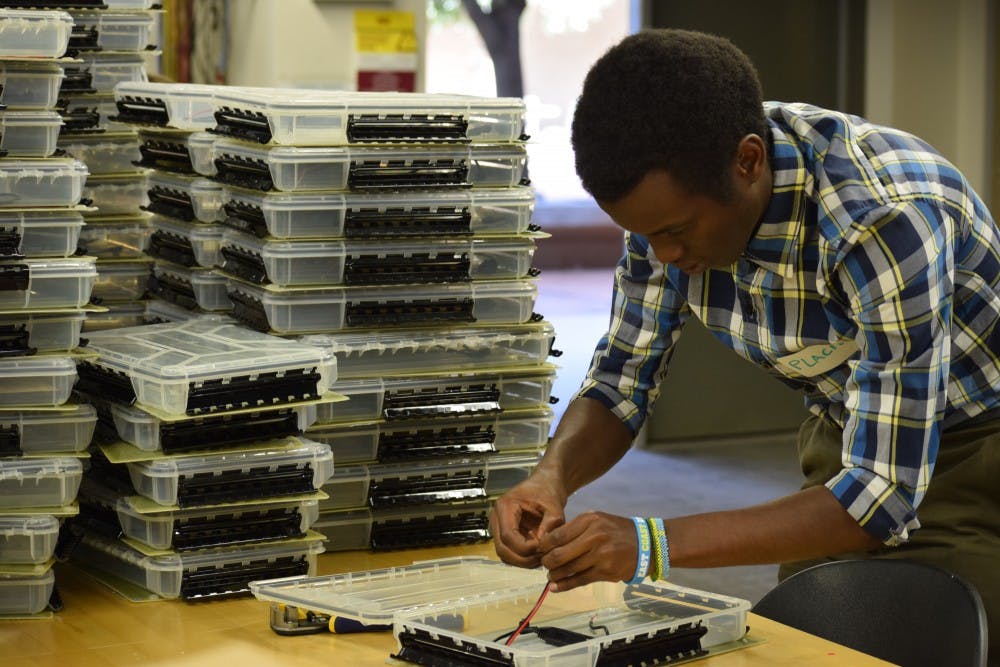ASU's Solar Powered Educational Learning Library (SPELL) research team hosted its latest build day on Satuday, Oct. 21 at Peralta Hall on ASU's Tempe campus to teach attendants how to build SPELLs and spread awareness about the team's project.
SolarSPELL is a project lead by Laura Hosman, a professor at ASU’s School for the Future of Innovation in Society.
The SolarSPELL is a portable digital library designed to provide books to communities with limited resources. The team can produce up to 150 devices during one of its build days.
The SolarSPELL team holds build days to spread awareness of the project as well as to teach local high school students and university students how to put together the hardware for mobile libraries.
The project is responding to the destruction of books subject to harsh environments in places like the South Pacific. Humid climates rapidly deteriorate physical books, and access to Wi-Fi networks isn’t common. To work around this, SPELLs were developed.
The SPELLs are designed to function in such harsh conditions with a sturdy plastic cases that can withstand high humidity. These small devices emit an offline Wi-Fi hotspot signal to simulate an online experience and allow users to access open-source educational material from devices like smartphones.
The devices allow students to access information that many take for granted. “We’re enabling these students to think critically and do research," Brianna Fornes, a member SolarSPELL’s hardware team, said. "It inspires students and sparks creativity.”
Fornes, a senior studying humanitarian engineering, is in charge of making sure the SPELLs are built well and are reliable.
Paul Horton, a senior studying software engineering and applied physics, said the SPELLs have to work with old browsers because these communities only have access to phones with outdated browsers and outdated versions of Android.
Horton is a member of SolarSPELL’s software development team, which has to find solutions to various compatibility issues.
“As a software developer, I have to keep in mind the state of the technology that I’m working with," Horton said. "A lot of the phones for example in the south pacific are donated old phones."
To make sure the SPELLs require minimal training to maintain, they are constructed using off-the-shelf materials like Raspberry Pi miniature computers.
“They don’t always have the internet, but they do have smart devices. They don’t necessarily know how to use them as we’re use to being internet natives if you will,” Miles Mabey, a senior studying robotic engineering and the SolarSPELL’s hardware team lead, said.
The program allows these students to gain hands-on experience, collaborate with educators around the world and help those less fortunate than them.
Hardware team member Brittany Blevins, a senior mechanical engineering major, said she's loved being a part of a project that is helping people in need.
“I fell in love with the whole picture and impact it’s making globally," Blevins, said. "The technology is simple but so powerful."
Reach the reporter at jicazare@asu.edu or follow @sonic_429 on Twitter.
Like State Press on Facebook and follow @statepress on Twitter.




